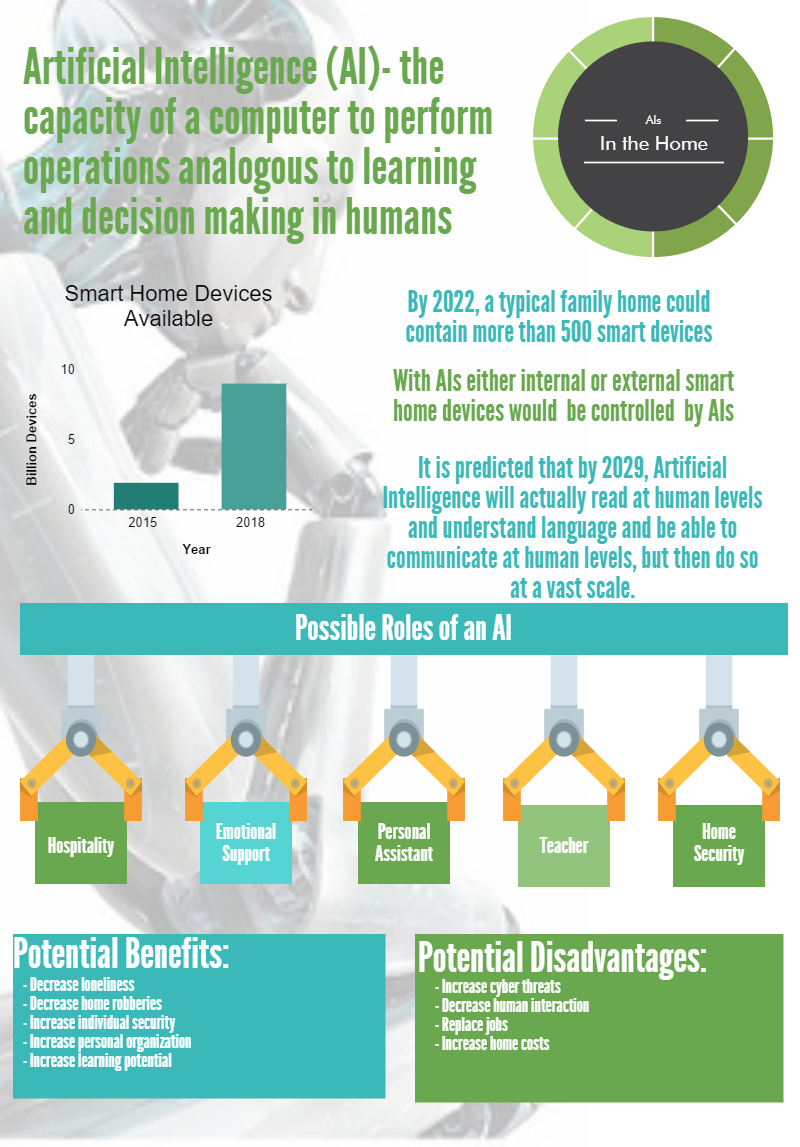The benefits of artificial intelligence
As artificial intelligence (AI) technologies such as the Amazon Echo and self-driving cars are hitting the market, they are poised to become an essential part of society. For people around the world, especially college students, this could mean some big changes.
Once created, an AI can be used either internally or externally. Internal interfaces are located on a cloud and can access other devices and software that is used in the home such as a TV or smartphone. Technology like the Amazon Echo, which can access apps that are downloaded on a smart phone, is an example of this, but in comparison this technology is rudimentary compared to what others have developed.
In 2007 an artificial intelligence called the EMOSpark was created. This intelligence was very different than what Apple and Microsoft companies have been trying to create because it can detect human emotion. As it has developed, its ability to respond to human emotion has become even better. In a society where depression is so common, especially in students, this technology could make a huge difference.
In comparison, the external processor is very far behind on a technological basis. An external processor uses the internal interface but it is limited to one machine. Scientists are currently focusing the development of this technology on motor skills, which can be much harder to learn.
“A camera takes pictures. Right? We have millions of pixels, but these are just numbers. But they don’t really have meaning in themselves. So, the task for artificial intelligence and computer vision algorithm is to take these numbers and convert them into meaningful objects,” said Dr. Fei-Fei Li, a Director at the Stanford AI Lab. Currently AIs are unable to actually perform simple tasks such as folding a shirt — a task the team at the Stanford AI Lab is currently trying to teach one of their robots.
Experts, however, believe that the complete development of both technologies will take off in the next few years. “These technologies expand exponentially. They double in power roughly every year, so look at The Genome Project. It was a 15-year project. Halfway through the project, 7.5 years into it, 1 percent had been completed, so some people looked at it and said, ‘Well, 1 percent, we have just barely started.’ I looked at it and said, 1 percent, well, we’re halfway through … from one perspective, we’re in the early stage in artificial intelligence, but exponentials start out slowly, and then they take off,” said Ray Kurzweil, director of engineering at Google, to PBS reporter Hari Sreenivasan.
Despite the excitement from some, many experts caution against the advancement of AIs. When asked about a revamp of the technology he uses to communicate, which involves a basic form of AI, famous scientist Stephen Hawking said, “The development of full artificial intelligence could spell the end of the human race.”
Despite this dark prediction, artificial intelligence continues to develop and as it does so, more and more benefits become available to the human race.
— shaniehoward214@gmail.com

